Let's Talk About Mental Health In Gamers and What the Video Game Industry Does About It
Gaming can help more than you know.
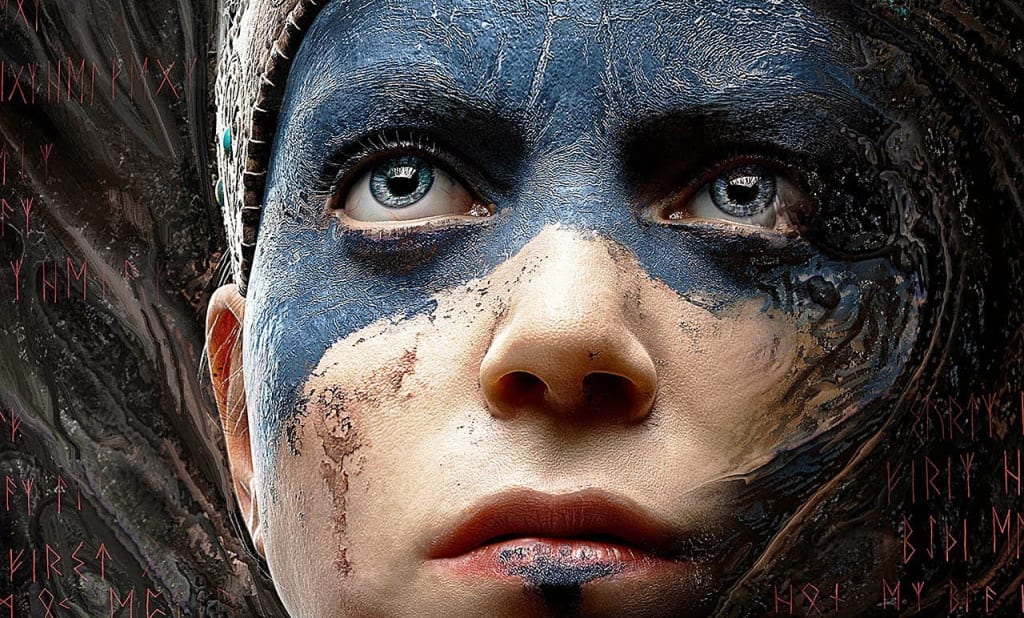
Gamers. We need to have a serious conversation. I'm not talking about the conversation you'd have with your mom, dad, cousin, uncle, sister, brother, or whoever about dating or sex. I'm talking about a topic that impacts tens of millions of Americans every day, and people right here in our very own diverse gaming community. I'm talking about mental health issues.
Before we begin, I want you to know that you aren't alone. Like some among us, I have been diagnosed with a mental illness. I live my life with manic depression, a disorder that can be crippling to some who live with it. It's a disorder that isn't pleasant. Sometimes I can't get out of bed, I don't want to eat — I don't want to do anything. I'd rather be left alone.
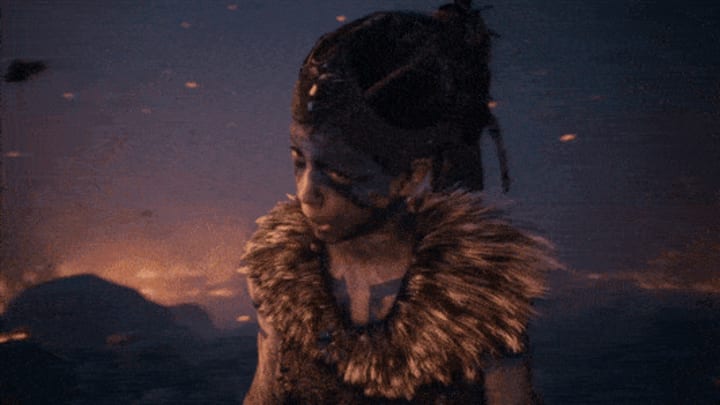
Hellblade: Senua's Sacrifice [Credit: Ninja Theory]
There are days where getting out of bed, taking a shower, brushing my teeth prove too much to handle, so I just pull the blanket over my head and pass out again. The cause? A genetic flaw in my DNA structure that somehow messed with the way I perceive the world and my own feelings. It's a single piece of my DNA that is quite literally making my brain my own worst enemy. But I'm not wanting pity. I want you to sit down and read this. Seriously.
You're going to ask me why. You're going to ask why you should listen to me. Why you should listen to someone who hasn't got a medical degree and so is not an expert in this field. I'm wanting to talk to you because people who suffer from similar mental health issues, such as depression or anxiety, tend to favor the same kinds of video games. I want to discuss this because it's important that we as gamers are open about such issues. I also want to discuss it because this industry, this community, and even the games themselves have saved my life and helped me fight against mental illness.
OK, You Have My Attention. Now What? I Have A Smite Game To Return To
I know, I know, I know. You've heard this a million times, but what if I told you that you are hearing it from someone who has been living with this for almost their entire life? I want you to listen because you aren't alone in dealing with these problems. You aren't alone in dealing with the substance abuse or insane spending habits brought about by your mental health issues.
I'm not writing about depression, suicide or downers. Instead, I want to write about hope. I know this now, thanks to the great folks in my #FinalFantasy14 free company who I've opened up to, my friends I game with that know me better than anyone else, even my parents.
As a gamer, I know we are a prideful bunch. We draw strength from the attitudes we carry and how we apply the lessons learned in gameplay to our real-world, day-to-day tasks. Your families and friends may frown upon these things you've learned. They may see it as pathetic that you've taken pride in such things. Trust me, I know. I had bragging rights as one of the top Resto Shamans in World of Warcraft: Cataclysm. It was seen as unhealthy, since it was me detaching some part of myself from reality.
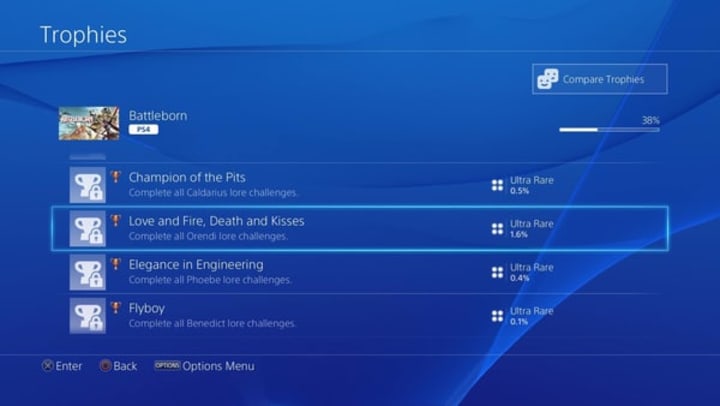
Trophies and achievements can serve as minor improvements towards mental health.
What if I told you that these gaming triumphs may very well be the first step to helping you take control of your illness? It's because of these small victories that you can rest a bit easier at night. Much like admitting to yourself that getting out of bed could be an accomplishment, since for some of us it is.
When you hit rough patches like I do, it's difficult to even look at yourself in the mirror. You feel weak, you feel miserable, you have no self-confidence, and those bad days in gaming may not help. They may not get you over that psychological mountain before you, but as with any mountain, it's something you can climb, one small step at a time.
As with any game, such as FromSoftware's Dark Souls, triumphs come in many ways. For me, downing "Lothric, Younger Prince, Lord of Cinder" was a staggering accomplishment that made me pound my hand against my chest in excitement. It was that single moment that marked me coming out of one of my worst depressive spells in months. For some of you, those moments may come when running high kill-to-death ratio matches in games such as Call of Duty: Infinite Warfare, #Battlefield1, or even your favorite MOBA.
Video games aren’t passive. They require interaction. This has often meant they've been unfairly singled out as a source of destructive behaviors, with terms like “game addiction" splashed across newspapers and websites, and alarmist stories equating games to binging on drugs or to gambling. The interactivity of games is what gives them their measurable cognitive benefits, helping maintain brain function or training sharper reaction times.
Games Can Help More Than You Know
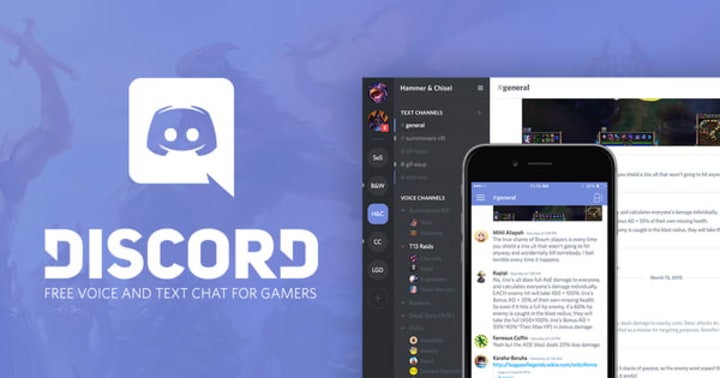
Let me tell you right now, games can help. Especially social games. As a gamer, you can imagine I have hundreds of friends. Many of these friends are faced with different issues, whether it's a physical disability, a mental disability, or even a combination of the two. All of them, I can assure you, are like you and I. We've invested a lot of money in our video games. And because of it we've succumbed to the predatory pricing of games.
We've become well acquainted with the cost of our hobby. Not our hobby, our escape. We've become accustomed to it due to the average cost we spend on our escape. For some of us, we may not be aware that our over-reliance on our hobby could also be a sign of an underlying mental health issue, which some businesses seek to exploit. Sadly, it's something many of us vulnerable gamers are yet to notice.
Luckily, not all of the gaming companies engage in such practices. Rather, some of them take on a noble pursuit to encourage limited gameplay and rest breaks. These games do not promote isolation as much as some segments of society might think. They don't cause you to become addicted. It's not the games that isolate gamers, but the gamers who have an underlying illness. They are the ones likely to become isolated, the ones that will gravitate to a time-sink game. If you are one of these people, it's OK. Trust me, I do it, and I'm aware that I do it. It's OK to force yourself to step away and take a break in order to find another way to cope — like joining me here at Creators and writing about the games you love.
You Are Not Alone

[Credit: Sony Entertainment]
Just remember: You aren't alone. You can reach out to friends, you can reach out to your guild or to your clan mates. I know it's tough. Even with my latest depressive episode, it was difficult for me to open up, but I did confide in one of my friends. There's nothing wrong with telling your friends who you game with that you need help, that you need someone to listen to you, and that you're having trouble coping.
If that's not enough, you can even reach out to me on Twitter with @GamingAnomaly or even here on Creators.
About the Creator
Dustin Murphy
A video games journalist and Content Creator. He has been featured on sites such as AppTrigger and MoviePilot. He's the president and editor-in-chief of the independent news publisher Blast Away the Game Review.




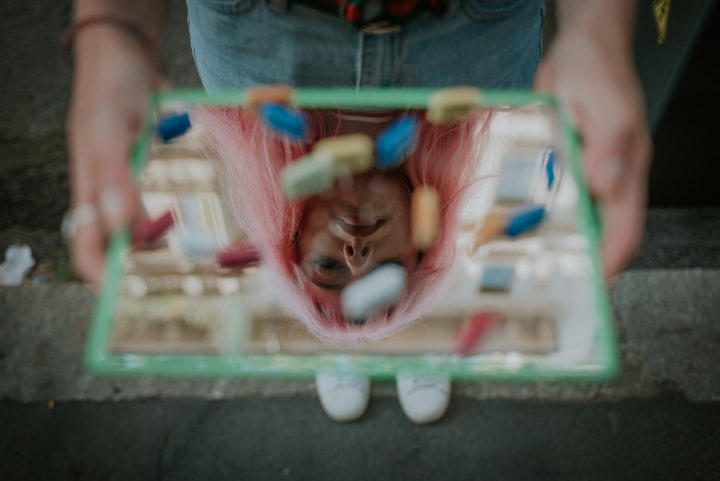

Comments
There are no comments for this story
Be the first to respond and start the conversation.